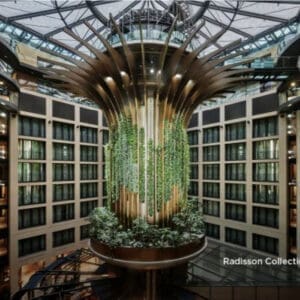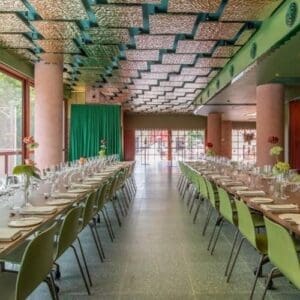
After the Federated Hospitality Association of South Africa (FEDHASA) raised some concerns about the implications of the proposed Liquor Amendment Bill, the association has called on the National Department of Trade and Industry (DTI) to communicate openly with the hospitality industry around the status of the Bill.
Speaking at the Food and Hospitality Africa Seminar in Johannesburg last week, FEDHASA CEO, Tshifhiwa Tshivhengwa said the industry is concerned about the unfavourable implications the amendment bill will have on the industry. He said FEDHASA has also not yet heard back from the DTI after the association highlighted the implications the bill is likely to have on the hospitality industry and the association’s suggested recommendations. ÒAs it is we don’t know where we stand and we need answers,Ó said MrÊTshivhengwa.
The DTI has proposed changes to the National Liquor Act, in a bid to address the high level of alcohol abuse in the country. It’s believed South Africa has one of the highest rates of foetal alcohol syndrome and that alcohol abuse contributes to around 130 road deaths every day. The amendment bill seeks to prohibit liquor advertising on TV and radio between 6am and 7pm daily, proposes raising the legal liquor consumption age from 18 to 21 and seeks to prevent the sale of alcohol near schools, places of worship and rehabilitation and treatment centres.
Bill is “un-pragmatic”
But Mr Tshivhengwa described the amendment bill as Òun-pragmaticÓ and not Òwell thought-outÓ. He said its list of changes, especially the one that relates to raising the legal alcohol consumption limit, will specifically affect hospitality establishments in towns with universities. And if passed, it also means many hotels, guest houses and B&Bs close to a park, beach or promenade and liquor stores in close proximity to a church or mosque would all be unable to secure a liquor licence. According to Mr Tshivhengwa, the proposed bill will be tabled during a cabinet meeting in August.
He said FEDHASA recommended that the DTI implements a single national liquor act, a single provincial liquor act and a single bylaw that provides for the trading days and hours of on-and-off consumption liquor licenced establishments, which can be enforced by all municipalities.Ê
FEDHASA represents the interest of over 10,000 direct and associate members in the South African hospitality industry including hotels, B&Bs, guest houses, game lodges, restaurants, pubs, taverns, shebeens, conferences centres and casinos. ÒThe passing of this bill, as it stands will be monumentally disruptive to the industry,” said MrÊTshivhengwa.Ê”And at this stage feedback from the DTI is important.”















